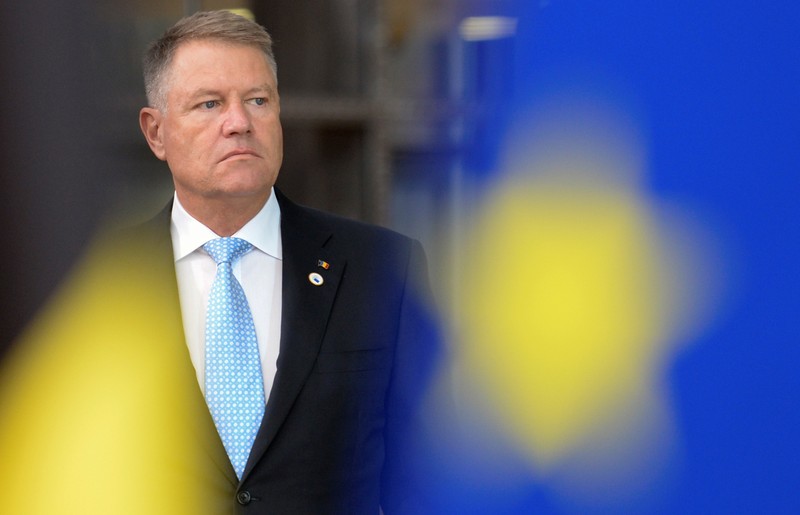
FILE PHOTO: Romanian President Klaus Iohannis arrives for the second day of the European Union leaders summit dominated by Brexit, in Brussels, Belgium October 18, 2019. REUTERS/Johanna Geron
November 10, 2019
By Radu-Sorin Marinas
BUCHAREST (Reuters) – Romanians vote in a presidential election on Sunday and are expected to support incumbent Klaus Iohannis, an anti-graft policymaker who has won praise in the West for his commitment to the rule of law.
Opinion polls show Iohannis, 60, a centrist liberal, winning the ballot with some 40% of the vote. If the polls are correct he will have to face a runoff on Nov. 24, which he is also expected to win.
Romania’s president nominates a prime minister, who has executive powers, after holding consultations with political parties. The president can also veto laws adopted by parliament by challenging them in the constitutional court or by sending them back to be re-considered.
Iohannis is trailed in the polls by Viorica Dancila, leader of the Social Democrats’ (PSD) and a former premier, and by Dan Barna, head of the centre-right opposition Save Romania Union. Both are vying for a spot in the runoff with about 20% in opinion polls.
Romania has been monitored by Brussels over progress on reform of its judiciary since 2007. But, a succession of PSD governments have tried to roll back certain anti-corruption rules in recent years, joining the ranks of other ex-communist states in the European Union in incurring criticism over the rule of law.
In May, Liviu Dragnea, a former PSD leader, was sentenced to three and a half years in prison after being found guilty of graft.
In October the European Commission reported that backtracking from judicial reform and the fight against corruption persisted.
Iohannis, who won his first term as president in 2014, had challenged a contested overhaul of the judiciary and attempts to limit magistrates’ independence.
He also spearheaded a national referendum where an overwhelming majority of Romanians said they wanted the government to be banned from altering legislation via emergency decrees, and advocated a national ban on granting amnesties and pardons for graft-related crimes.
If re-elected, Iohannis will have a chance to install chief prosecutors who say they are committed to tackling endemic corruption, supported by the liberal minority government of Prime Minister Ludovic Orban, an ally who won a parliamentary vote of confidence this month.
“It is important to have continuity at the helm and I think Iohannis deserves a new one (term). He proved he’s been able to accomplish many things, he successfully fought and defeated the PSD. Look at Dragnea and other (corrupt) people, (who) are now in jail. He must continue,” said 29-year-old shop clerk Dora Stanga.
Observers said a win for Iohannis might bolster the Liberal Party’s chance of forming a coalition government after a general election due in 2020 and restore investor confidence eroded by several years of political instability and fiscal largesse.
Polling stations across the country open at 0500 GMT and close at 1900 GMT. The country has 18.2 million eligible voters.
(Editing by James Drummond)

